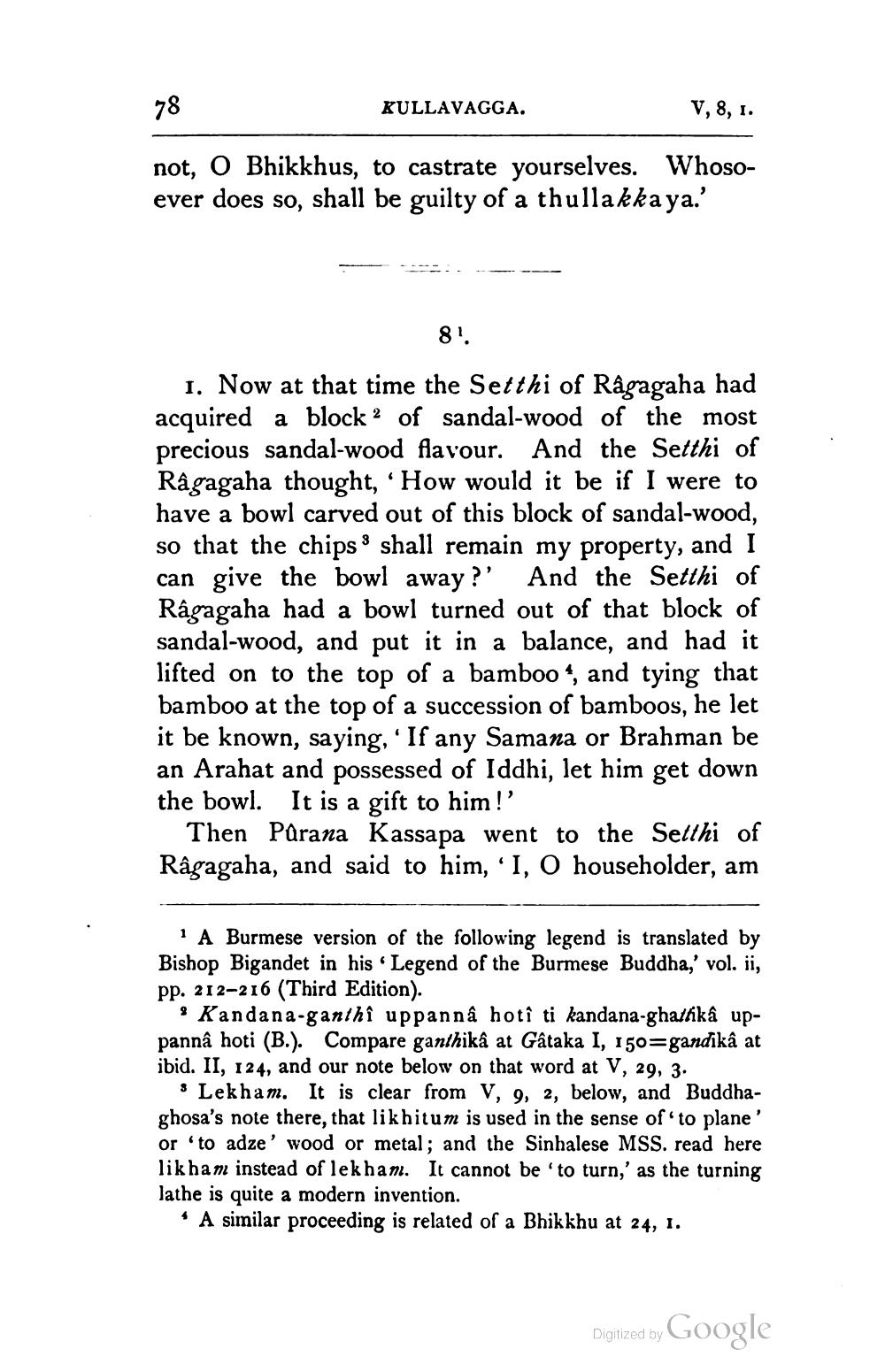________________
78
KULLAVAGGA.
V, 8, 1.
not, O Bhikkhus, to castrate yourselves. Whosoever does so, shall be guilty of a thullakka ya.'
8!.
1. Now at that time the Setthi of Râgagaha had acquired a block of sandal-wood of the most precious sandal-wood flavour. And the Setthi of Râgagaha thought, 'How would it be if I were to have a bowl carved out of this block of sandal-wood, so that the chips: shall remain my property, and I can give the bowl away?' And the Setthi of Râgagaha had a bowl turned out of that block of sandal-wood, and put it in a balance, and had it lifted on to the top of a bamboo 4, and tying that bamboo at the top of a succession of bamboos, he let it be known, saying, “If any Samana or Brahman be an Arahat and possessed of Iddhi, let him get down the bowl. It is a gift to him!'
Then Parana Kassapa went to the Setthi of Râgagaha, and said to him, ‘I, O householder, am
1 A Burmese version of the following legend is translated by Bishop Bigandet in his . Legend of the Burmese Buddha,' vol. ii, pp. 212-216 (Third Edition).
i Kandana-ganthi uppanna hoti ti kandana-ghathika uppannâ hoti (B.). Compare ganthikâ at Gâtaka I, 150=gandikâ at ibid. II, 124, and our note below on that word at V, 29, 3.
* Lekham. It is clear from V, 9, 2, below, and Buddhaghosa's note there, that likhitum is used in the sense of to plane' or 'to adze' wood or metal; and the Sinhalese MSS. read here lik ham instead of lekham. It cannot be 'to turn,' as the turning lathe is quite a modern invention.
A similar proceeding is related of a Bhikkhu at 24, 1.
Digitized by
Digilzed by Google




